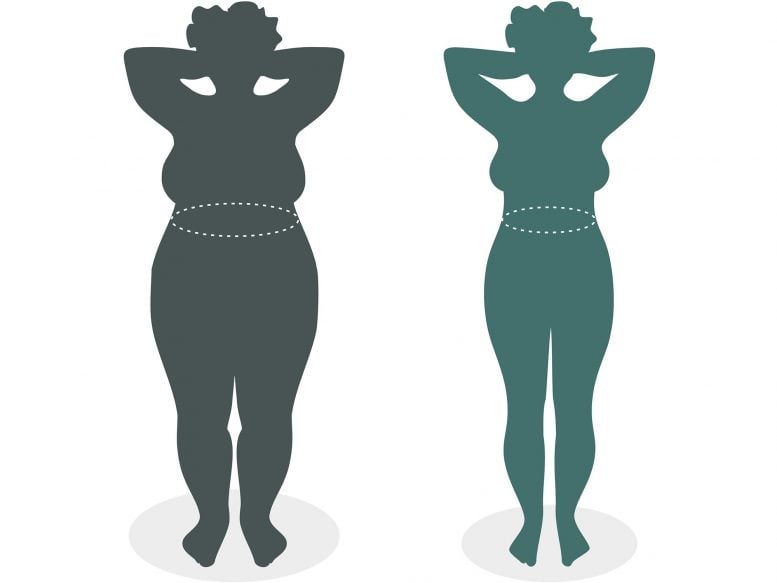
Posted on 07/10/2025 10:54:30 AM PDT by Red Badger

A new drug prevents weight gain and fatty liver by controlling magnesium in cells. It made mice stay slim despite lifelong exposure to an unhealthy diet. Credit: Stock
Scientists have unveiled a small-molecule drug that blocks weight gain and liver damage in mice forced to live on sugary, high-fat food.
The compound works by limiting magnesium inside mitochondria—the cell’s power plants—so energy keeps burning instead of stalling. Treated mice quickly slim down and show no signs of fatty-liver disease, hinting at a future therapy against obesity, heart trouble, and cancer tied to poor diets.
Breakthrough Drug Fights Fat and Liver Disease
Researchers at UT Health San Antonio, working with colleagues from the University of Pennsylvania and Cornell, have created a small-molecule drug that keeps mice from gaining weight or developing liver damage even when they eat a lifetime of sugary, high-fat food.
“When we give this drug to the mice for a short time, they start losing weight. They all become slim,” said Madesh Muniswamy, PhD, professor of medicine in the health science center’s Joe R. and Teresa Lozano Long School of Medicine. The study appears in Cell Reports.
“A drug that can reduce the risk of cardiometabolic diseases such as heart attack and stroke, and also reduce the incidence of liver cancer, which can follow fatty liver disease, will make a huge impact.”
Magnesium’s Hidden Role in Metabolism
The team began by asking how magnesium shapes metabolism—the way cells make and burn energy called ATP. Magnesium is the body’s fourth-most abundant charged mineral, vital for blood sugar control, blood pressure, and bone strength. Yet the scientists discovered that an excess of magnesium inside mitochondria, the cell’s “power plants,” actually slows energy production.
“It puts the brake on, it just slows down,” said co-lead author Travis R. Madaris, doctoral student in the Muniswamy laboratory at UT Health San Antonio.
When the researchers deleted MRS2, a gene that shuttles magnesium into mitochondria, the animals burned sugar and fat more efficiently. The mice stayed lean and healthy, with liver and fat tissue showing no trace of diet-induced fatty liver disease.
Man Stepping on Brake Pedal
Magnesium acts like a brake on energy production, researchers found. Credit: Shutterstock Drug CPACC Mimics Genetic Effect
The drug, which the researchers call CPACC, accomplishes the same thing. It restricts the amount of magnesium transfer into the power plants. In experiments, the result was again: skinny, healthy mice. UT Health San Antonio has filed a patent application on the drug.
The mice served as a model system of long-term dietary stress precipitated by the calorie-rich, sugary and fatty Western diet. The familiar results of this stress are obesity, type 2 diabetes and cardiovascular complications.
“Lowering the mitochondrial magnesium mitigated the adverse effects of prolonged dietary stress,” said co-lead author Manigandan Venkatesan, PhD, postdoctoral fellow in the Muniswamy lab.
Joseph A. Baur, PhD, of the University of Pennsylvania, and Justin J. Wilson, PhD, of Cornell, are among the collaborators. “We came up with the small molecule and Justin synthesized it,” Madaris said.
Major Health Impact Potential “These findings are the result of several years of work,” Muniswamy said. “A drug that can reduce the risk of cardiometabolic diseases such as heart attack and stroke, and also reduce the incidence of liver cancer, which can follow fatty liver disease, will make a huge impact. We will continue its development.”
Reference:
“Limiting Mrs2-dependent mitochondrial Mg2+ uptake induces metabolic programming in prolonged dietary stress”
by Travis R. Madaris, Manigandan Venkatesan, Soumya Maity, Miriam C. Stein, Neelanjan Vishnu, Mridula K. Venkateswaran, James G. Davis, Karthik Ramachandran, Sukanthathulse Uthayabalan, Cristel Allen, Ayodeji Osidele, Kristen Stanley, Nicholas P. Bigham, Terry M. Bakewell, Melanie Narkunan, Amy Le, Varsha Karanam, Kang Li, Aum Mhapankar, Luke Norton, Jean Ross, M. Imran Aslam, W. Brian Reeves, Brij B. Singh, Jeffrey Caplan, Justin J. Wilson, Peter B. Stathopulos, Joseph A. Baur and Muniswamy Madesh, 27 February 2023, Cell Reports.
DOI: 10.1016/j.celrep.2023.112155
Funders of this project include the National Institutes of Health, the U.S. Department of Defense and the San Antonio Partnership for Precision Therapeutics.
A version of this article was originally published in April 2023.
Cool. Thanks.
Of course, this is the last time we will ever hear of this miracle drug.
Magnesium is a laxative in large quantities..so that is how you lose/control weight.
Great, more commercials with lazy fat asses. Maybe the Lume pig can combine her stank and bulk into one product.
bfl
America is one endless search for the next blue pill.
I guess that’s science and progress?
So is a diet and some exercise.
On the flip side, if these new meds work better and are more safe than say phentermine (nasty stuff) or chopping people’s plumbing apart and rerouting it (gastric bypass), it’s the better of two evils.
It says they “slim down”.
I HATE THAT COMMERCIAL!...............
AND THE NEW ONE FOR MEN SPRAYING THEIR WHATEVERS INSIDE THEIR SHORTS!...........
Sounds like advice to limit magnesium, not take supplements
‘The team began by asking how magnesium shapes metabolism—the way cells make and burn energy called ATP. Magnesium is the body’s fourth-most abundant charged mineral, vital for blood sugar control, blood pressure, and bone strength. Yet the scientists discovered that an excess of magnesium inside mitochondria, the cell’s “power plants,” actually slows energy production.And …”
UGH, commercials have gone from distasteful to horrendous.
Researchers are closer to developing a drug that could one day rival celebrity-touted Ozempic, as initial experiments show that an in-the-works medication can both prevent weight gain and promote weight loss.
Scientists from the University of Texas Health Science Center at San Antonio tested the “game-changing” drug, called CPACC, on mice.
Led by professor of medicine Madesh Muniswamy, the researchers discovered that the drug curbed weight gain from foods high in sugar and fat, which are prevalent in the Western diet.
It seems to be great news for people with a sweet tooth: In theory, people could chow down on whatever they wanted without the added health risks and weight gain.
Currently, 1 in 3 Americans is overweight, per the National Institutes of Health.
“One of the main barriers to people losing weight is getting to a healthy diet and sticking to it, and also, you typically have to combine it with pretty aggressive exercise – and not everyone can exercise,” study author Travis Madaris, a doctoral student working with Muniswamy, told The Post.
“This, standalone or maybe in combination with some minor lifestyle changes, would definitely be game-changing for people that struggle with losing weight.”
The study, published in Cell Reports, comes after months of A-listers using the weight-loss injectable Ozempic, a drug meant for people with Type 2 diabetes. While there’s been speculation as to who exactly has been taking it, the uptick in popularity has triggered a widespread shortage, leaving diabetics empty handed.
“When we give this drug to the mice for a short time, they start losing weight. They all become slim,” said Madesh Muniswamy, PhD …Uh-huh.
There are two different ways
to build yourself up for the thrills.
Either your wife slim down with magnesium.
Or you take the little blue pill.
“When we give this drug to the mice for a short time, they start losing weight. They all become slim,” said Madesh Muniswamy, PhD, professor of medicine in the health science center’s Joe R. and Teresa Lozano Long School of Medicine. The study appears in Cell Reports.

You are the fifth person who told me that in this thread. Thanks.
Correct...hard to do with years of eating too much...but completely doable. Not sure if messing with cellular energy production body wide is a good idea though..
https://en.wikipedia.org/wiki/Chloropentamminecobalt_chloride
Chloropentamminecobalt chloride
You can just go buy 50g for $653 here.
Tell me what dosages you use and if you OD.
E. Pluribus Unum wrote: “You are the fifth person who told me that in this thread. Thanks.”
My apologies. Should teach me to reach all the comments before replying.
I think cocaine is cheaper................😁
“If you put them in a secure environment, calorie rehab clinic, and restricted them to 1350 calories per day, they would probably complain that they are being starved.”
The average person needs around 2000 calories, depending on many factors. Not accounting for calories burned by exercise, this sustains a body weight of about 167 lbs.
On average, 1350 calories will sustain a body weight of about 112 lbs. Even less if the person is exercising.
For the majority of adults, that IS a starvation diet.
However, it may be a very healthy short-term diet for those of us who carry excess body fat.
Disclaimer: Opinions posted on Free Republic are those of the individual posters and do not necessarily represent the opinion of Free Republic or its management. All materials posted herein are protected by copyright law and the exemption for fair use of copyrighted works.